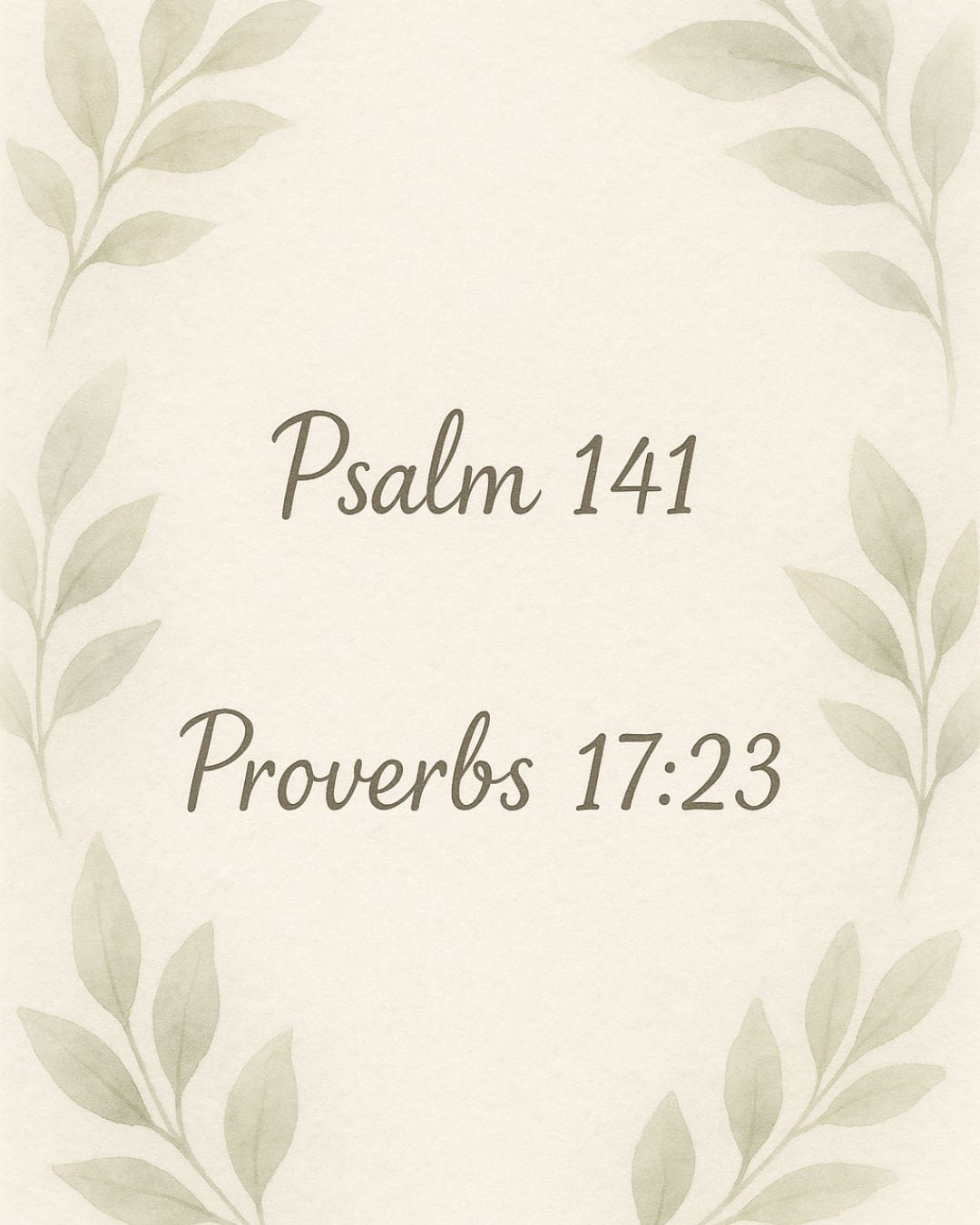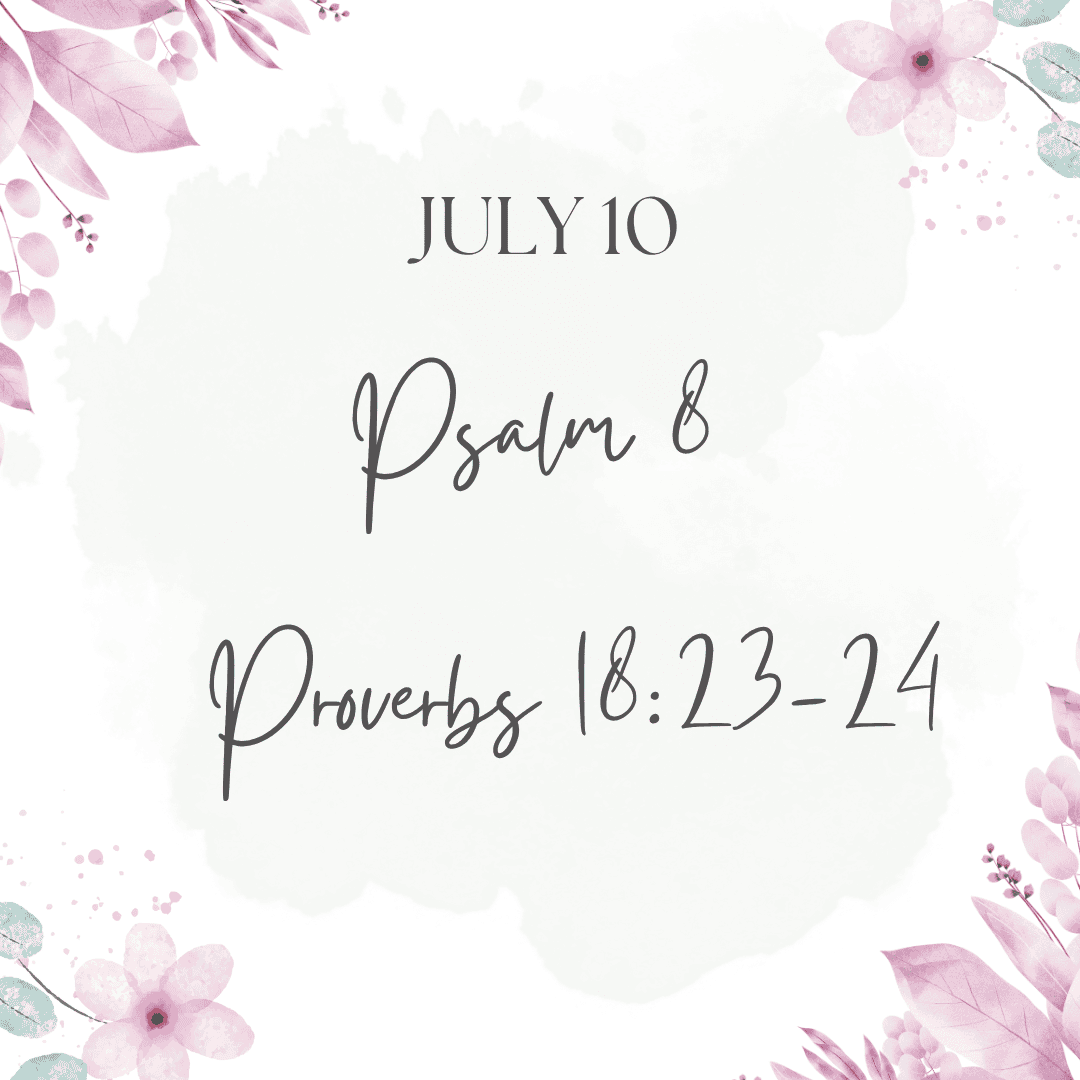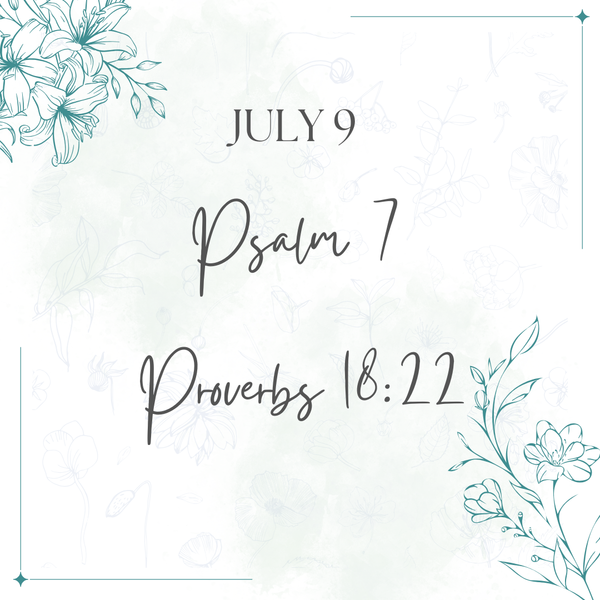June 23 Psalm 141; Proverbs 17:23

- In Psalm 141:2, David says, “Accept my prayer as incense offered to you, and my upraised hands as an evening offering.” What does this reveal about how David views prayer and worship? How might this shape our own posture in prayer?
- In Psalm 141:3, David pleads, “Take control of what I say, O Lord, and guard my lips.” Why do you think he emphasizes control over speech? What would it look like for you to make this a daily prayer?
- David asks in Psalm 141:4, “Don’t let me drift toward evil…” What does this suggest about the human heart and temptation? How does this inform your understanding of personal responsibility and dependence on God?
- In Psalm 141:5, David welcomes correction, saying, “Let the godly strike me! It will be a kindness!” How open are you to godly rebuke in your life? What can hinder a humble attitude toward correction?
- What qualities of God are implied or revealed in Psalm 141 regarding His attentiveness, holiness, and justice?
- David contrasts the fate of the wicked with the hope of the righteous in Psalm 141:6–10. What emotions or expectations does he express about justice? How does this shape our hope when facing injustice or evil?
- In Psalm 141:8, David says, “I look to you for help, O Sovereign Lord. You are my refuge; don’t let them kill me.” What does this reveal about God’s character and David’s trust? How does this encourage you in times of fear or uncertainty?
- Psalm 141:10 says, “Let the wicked fall into their own traps, but let me escape.” How do you interpret this desire for deliverance and justice? How do you reconcile it with Jesus’ call to love our enemies?
- Proverbs 17:23 says, “The wicked take secret bribes to pervert the course of justice.” How does this proverb speak to integrity and the hidden nature of sin? Can you think of modern examples where this applies?
- How do both passages (Psalm 141 and Proverbs 17:23) deepen your understanding of God’s desire for justice and righteousness in both personal and public life? What changes might God be prompting in your words, actions, or decisions?



